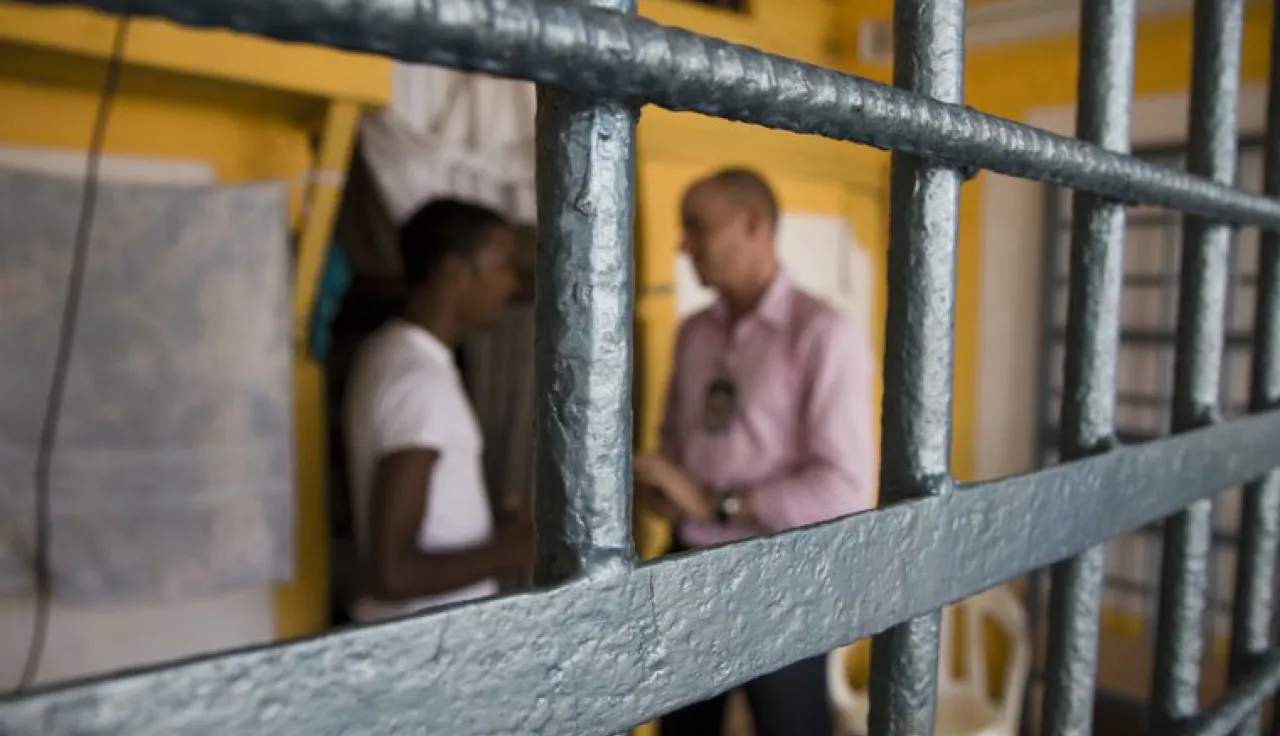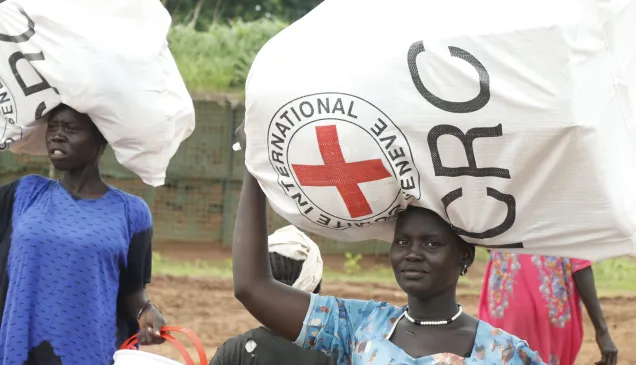COVID-19: Protecting prison populations from infectious coronavirus disease

An outbreak of coronavirus COVID-19 in a prison could be devastating to the population there, especially an overcrowded prison where general health is already low.
Elena Leclerc, the health in detention programme coordinator for the International Committee of the Red Cross, talks about the issues she's watching out for in the more than 50 countries where the ICRC has assistance and monitoring projects in detention facilities.
Q: Why are people in detention so vulnerable to an infectious disease like COVID-19?
A: People in places of detention often come from vulnerable socio-economic backgrounds. They may have had limited access to health care even outside of prison. Their health may be in a poorer state than the general population.
And once in prison the conditions may exacerbate that: limited access to health care, maybe less food than would be ideal nutritionally, and of course situations of overcrowding that lead to higher chances of transmission of disease because of proximity to others.
Q: And is it the case that the health systems in places of detention may not be so strong?
A: Places of detention in many countries have weaker health care systems compared with the outside, meaning people have less care inside prison. If the novel coronavirus disease (COVID-19) hits, then the demand for medical services among this vulnerable population will be quite high, and the prison health system likely won't have the capacity, the medical supplies and human resources, in particular, to respond to the demands.
Q: Is an infectious disease more contagious inside a prison than outside?
A: The coronavirus that causes COVID-19 seems to be spreading easily. The rate of transmission inside places of detention will be higher than outside a detention setting because of the conditions of detention, which often have inadequate ventilation, are overcrowded, and have weaker health systems.
Q: And that's why the ICRC focuses on preventing infections from entering a prison?
A: We feel that once inside a prison, infections are very difficult to contain. Prisons aren't walled off from society when it comes to infectious diseases, because there is a constant flow of staff and visitors and the movement of detainees in and out of the facility. There is a constant interchange with society.
In an overcrowded prison, once one person has the coronavirus COVID-19 it's likely that hundreds of people will have it. People there may already have compromised immune systems because of tuberculosis or HIV/AIDS or other chronic conditions like diabetes. That means you'll see a higher mortality rate in this prison population.
Q: What does the ICRC do in prisons to help with the health situation there?
A: The ICRC works together with authorities in places of detention in approximately 50 countries to strengthen the medical screening of new arrivals and the setting up of prevention measures – such as hand washing stations – for detainees, visitors, guards and delivery personnel.
We know from experience that these sanitation measures work, as we have seen them prevent the entry of Ebola – in Guinea, Libera and the DRC – and cholera in the DRC. In some locations we offer primary health care facilities in prisons. We have malnutrition treatment programmes, as nutrition is a determinant of health. We also support prison health wards.
Follow @ICRC to stay updated about the coronavirus COVID-19 outbreak and get advice on how to keep yourself safe.



